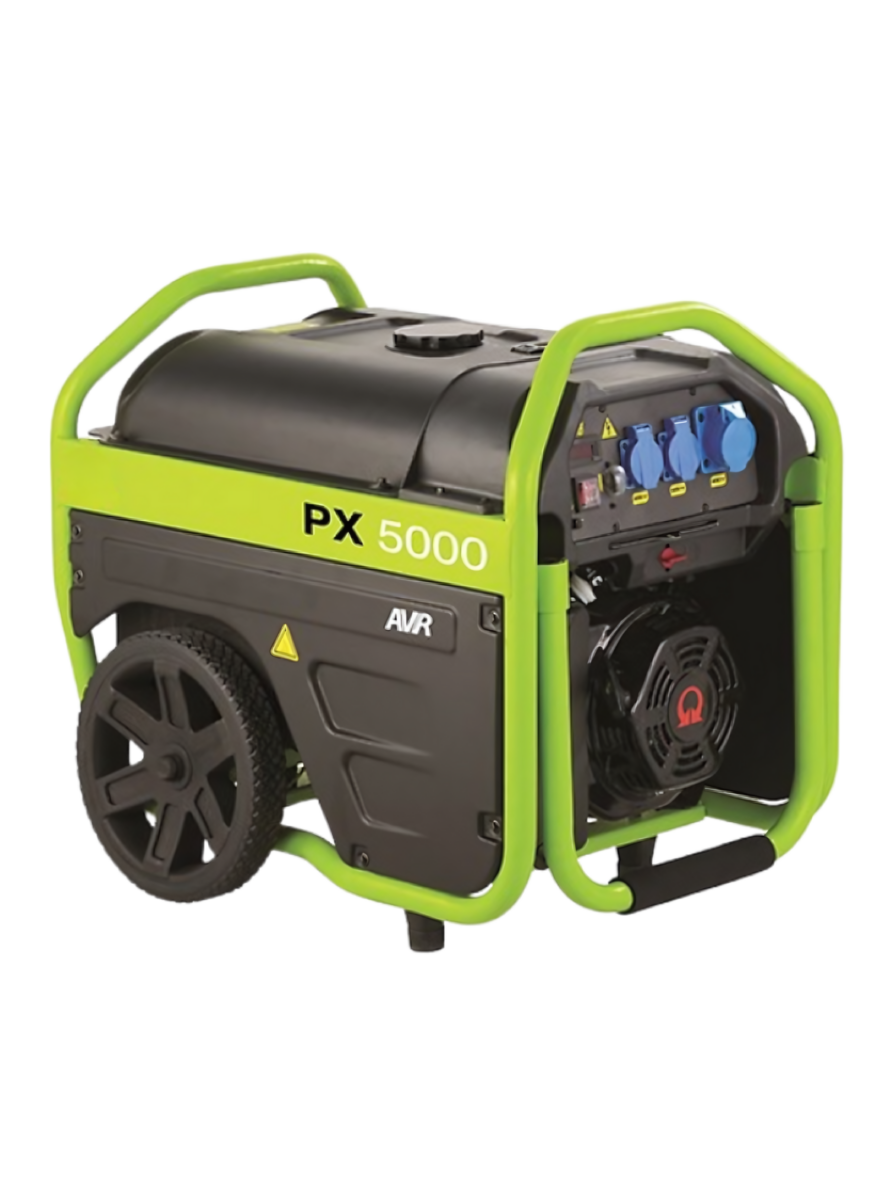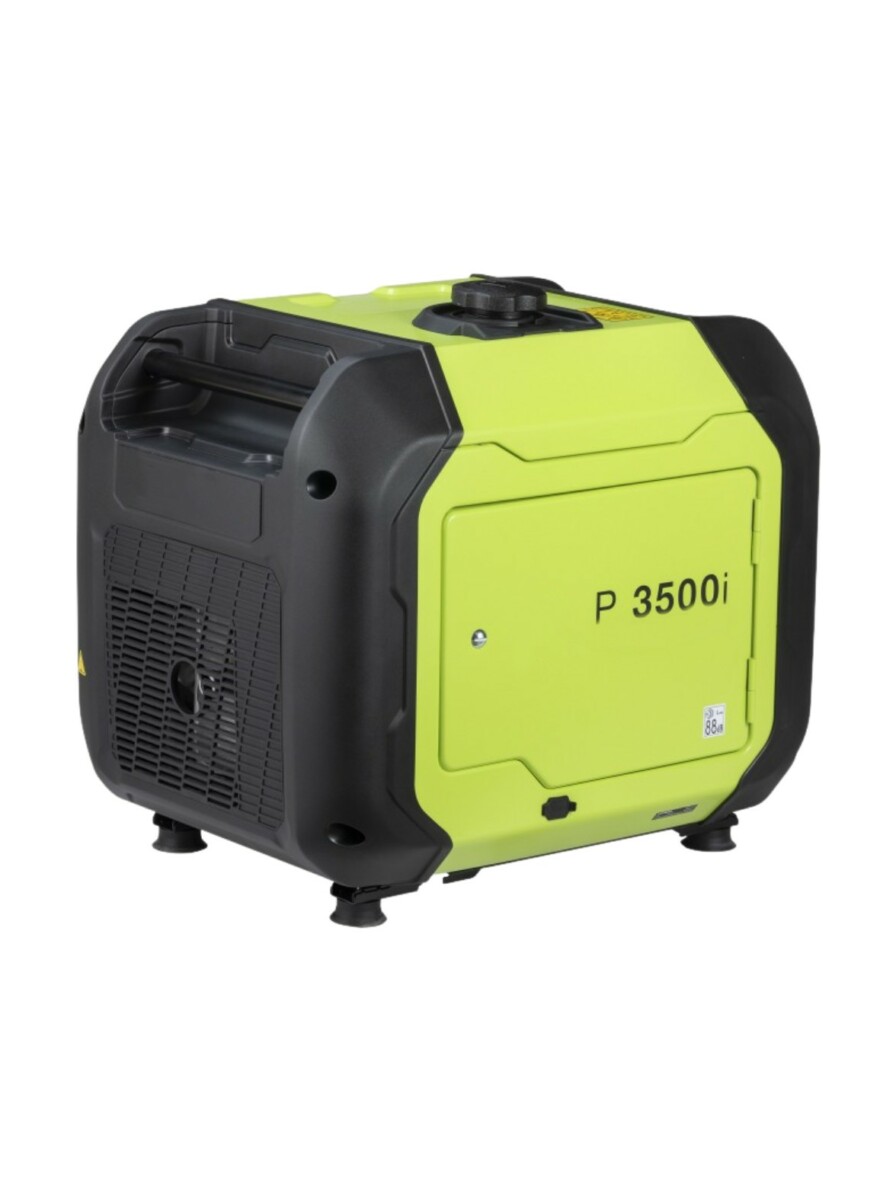Comment choisir votre groupe électrogène de chantier ?
Les groupes électrogènes de chantier sont essentiels pour fournir de l’électricité sur les chantiers. Pour garantir une énergie fiable pour un projet de construction ou de rénovation, il est crucial de choisir le bon modèle. Que vous ayez besoin d’électricité pour des outils, des équipements ou des systèmes de lumière, vous devez prendre en compte plusieurs facteurs pour faire le meilleur choix.
Téléchargez notre tableau récapitulatif sur comment choisir votre groupe électrogène en fonction du type de matériel.
A quoi sert un groupe électrogène ?
Un groupe électrogène permet de produire de l’électricité de manière autonome. Il fournit une source d’énergie fiable lorsqu’il n’y a pas accès au réseau électrique. Sur un chantier, il alimente divers équipements comme les outils électriques et les systèmes d’éclairage. En dehors des chantiers, il peut également servir de générateur de secours pour une maison ou pour les loisirs en extérieur. Le fonctionnement est simple : un moteur thermique, à essence ou diesel, entraîne une génératrice qui convertit l’énergie mécanique en courant alternatif.
La puissance de la génératrice d’un groupe électrogène
La puissance d’un groupe électrogène varie considérablement, allant de 2 à 200 kVA selon le modèle. Généralement, la puissance est exprimée en kW (kilowatts) ou en kVA (kilovoltampères). Pour simplifier, 1 kVA équivaut environ à 1 kW.
Il est crucial de déterminer la puissance nécessaire en fonction de vos besoins spécifiques. Pour des besoins ponctuels, une puissance de 1 000 à 3 000 W peut suffire pour quelques outils ou éclairages. Cependant, pour un usage professionnel ou des chantiers plus exigeants, choisissez un groupe électrogène d’au moins 10 000 W.
Si vous souhaitez utiliser le groupe électrogène comme alimentation de secours à domicile, un modèle de 5 000 à 6 000 W sera plus approprié. Pour protéger les appareils électroniques sensibles, optez pour un modèle avec régulation « Inverter » qui garantit une alimentation stable et de qualité.
Les différents types de groupes électrogènes
Tous les groupes électrogènes fonctionnent sur un principe similaire, mais leurs technologies varient. On distingue trois grandes catégories ainsi que deux types de motorisations.

Groupes électrogènes à essence
Les générateurs à essence sont souvent choisis pour leur légèreté et leur facilité de transport. Ils conviennent particulièrement aux petits chantiers ou aux travaux temporaires nécessitant une mobilité accrue. Leurs moteurs, généralement de petite taille, démarrent rapidement et sont faciles à utiliser. De plus, ces modèles sont souvent plus abordables, ce qui les rend économiques pour des besoins intermittents ou des projets de courte durée. Cependant, leur autonomie est plus limitée comparée aux générateurs diesel, et ils nécessitent un ravitaillement plus fréquent.

Groupes électrogènes à diesel
Les générateurs diesel se distinguent par leur robustesse et leur efficacité. Ils sont conçus pour des applications intensives, idéaux pour les grands chantiers nécessitant une alimentation continue. Leurs moteurs, plus durables, consomment moins de carburant que les modèles à essence. Les réservoirs de grande capacité prolongent les périodes d’utilisation sans interruption. Ainsi, ils sont parfaits pour des projets à long terme ou des environnements difficiles. Selon les modèles, vous pouvez choisir entre alimentations monophasée, triphasée ou mixte.

Groupes électrogènes insonorisés
Les groupes électrogènes insonorisés incluent un caisson isolé pour réduire les nuisances sonores. Ils limitent le niveau sonore à moins de 90 dB, tandis que d’autres modèles peuvent atteindre 105 dB ou plus. En plus d’être plus silencieux, ces groupes sont compacts, légers et rapides à mettre en œuvre, ce qui les rend idéaux pour des utilisations ponctuelles où la discrétion est essentielle. Cependant, cette réduction de bruit diminue leur puissance, qui dépasse rarement les 2 kW. Ces groupes fonctionnent principalement avec des moteurs thermiques à essence, souvent en version 2 temps ou 4 temps, et conviennent aux applications nécessitant une puissance modérée.
Quel moteur choisir pour un groupe électrogène ?
Les groupes électrogènes utilisent des moteurs 2 temps ou 4 temps. Les moteurs à 2 temps sont légers et compacts, parfaits pour des applications temporaires et des besoins modestes. Cependant, ils consomment plus de carburant et ont une durée de vie plus courte. En revanche, les moteurs à 4 temps, disponibles en versions essence et diesel, offrent une meilleure économie de carburant et émettent moins de pollution. Les moteurs essence 4 temps sont adaptés pour une utilisation modérée et sont plus silencieux. Quant aux moteurs diesel 4 temps, bien que volumineux, ils conviennent aux applications intensives, offrant durabilité et consommation réduite.
Quel type de démarrage choisir pour un groupe électrogène ?
Pour les groupes électrogènes à essence de faible puissance (< 3 kW), vous avez le choix entre un lanceur ou un démarreur. Si vous prévoyez une utilisation occasionnelle, un lanceur suffira. Pour une utilisation quotidienne, il est préférable de choisir un modèle équipé d’un démarreur, car il simplifie l’usage tout en nécessitant un entretien minimal de la batterie. Les autres groupes électrogènes incluent généralement un démarreur avec un mode manuel de secours pour garantir une fiabilité en toutes circonstances.
Quel est le rendement d’un groupe électrogène ?
Pour maximiser la durée de vie et l’efficacité de votre groupe électrogène, utilisez-le à environ 80 % de sa puissance maximale. Cela aide à réduire l’usure du moteur et à éviter la surcharge, tout en assurant une performance stable et fiable.
Déterminez d’abord la puissance nécessaire en additionnant la puissance totale des appareils que vous prévoyez de connecter. Ensuite, multipliez ce total par un facteur de sécurité de 1,20. Par exemple, pour alimenter des équipements nécessitant 4 000 watts, choisissez un groupe électrogène capable de fournir au moins 4 800 watts (4 000 x 1,20). Choisir un modèle avec une capacité légèrement supérieure assure une utilisation plus efficace et prolongée, tout en protégeant votre équipement contre les risques de surcharge.
Quelle est l’autonomie d’un groupe électrogène ?
L’autonomie d’un groupe électrogène dépend de la capacité de son réservoir de carburant et de la puissance de la charge. En général, les modèles avec des réservoirs plus grands offrent une autonomie plus longue. Pour les modèles portables, l’autonomie varie de quelques heures à une journée entière, selon la taille du réservoir et l’intensité de l’utilisation.
Un modèle tel que le groupe électrogène 1.9 kW à essence Pramac dispose d’un réservoir de 4.5 litres et consomme 1 l/h, ce qui vous offre environ 4h30 d’autonomie.
Vous pouvez également opter pour le groupe électrogène S12000 11.9 kVA essence avec ses 4 heures 30 d’autonomie.
A la recherche d’une plus grande autonomie ? Le groupe électrogène essence PX5000 3.8 kW dispose d’un réservoir de 27 litres et consomme 1.92 l/h vous offrant 14 heures d’autonomie.
Découvrez notre gamme complète de générateurs portables ici.
Quels types de régulation sur un groupe ?
Les groupes électrogènes peuvent être équipés de divers systèmes de régulation pour assurer une alimentation électrique stable. Le régulateur de tension AVR (Automatic Voltage Regulator) est couramment utilisé, ajustant automatiquement la tension de sortie pour maintenir une performance constante. Pour des besoins plus sensibles, comme l’alimentation d’appareils électroniques, le régulateur Inverter est recommandé. Ce système convertit le courant continu en courant alternatif stable, offrant une électricité de haute qualité avec fréquence et tension constantes. Les groupes électrogènes avec régulation Inverter sont particulièrement adaptés aux applications nécessitant une alimentation électrique précise et stable pour protéger les équipements délicats.
Choisir son générateur portable en cinq points
Voici un guide pour vous aider à sélectionner le groupe électrogène répondant le mieux à vos besoins.
- Déterminez vos besoins en énergie
Avant d’acheter un groupe électrogène, évaluez vos besoins en énergie. Calculez la puissance nécessaire pour les appareils que vous allez utiliser sur le chantier. Assurez-vous de choisir un modèle capable de fournir suffisamment de puissance pour tous vos équipements.
- Choisissez la bonne puissance
La puissance d’un groupe électrogène se mesure en kilowatts (kW). Assurez-vous de choisir un modèle avec une puissance adéquate pour vos besoins. Il est préférable de choisir un modèle légèrement surdimensionné pour éviter les problèmes de sous-alimentation.
- Considérez la qualité et la fiabilité
La portabilité est importante, surtout si vous devez déplacer le générateur d’un site à l’autre. Les groupes électrogènes varient en taille et en poids ; les modèles compacts sont plus faciles à transporter mais peuvent avoir une capacité inférieure. Assurez-vous que le modèle que vous choisissez est adapté aux conditions de votre chantier et suffisamment robuste.
- Prenez en compte le niveau sonore
Les groupes électrogènes peuvent être bruyants, ce qui peut gêner sur un chantier. Optez pour un modèle avec un niveau sonore réduit pour le confort des travailleurs.
- Vérifiez la consommation de carburant
La consommation de carburant impacte les coûts d’exploitation. Choisissez un modèle économe en carburant pour réduire les coûts et limiter les émissions polluantes.
En suivant ces conseils, vous pourrez choisir le groupe électrogène de chantier idéal pour vos besoins, garantissant ainsi la réussite de vos travaux en toute sécurité et efficacité. N’oubliez pas de prendre en compte les spécificités de votre chantier et de nous consulter si nécessaire pour faire le meilleur choix.







